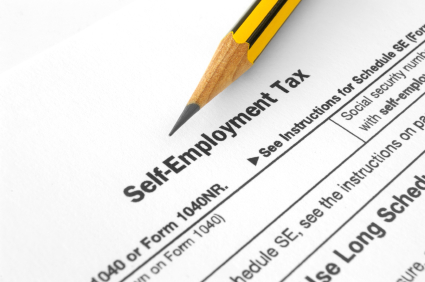Retire Overseas Tax Free
First, let me tell you about my inspiration for this post. France has been in the news and on this site quite a bit recently. They are pushing hard against America’s recent extortion of $9 billion from one of their banks, and I think this could have a major impact on the dominance of the dollar.
You might be wondering what this has to do with how to retire overseas tax free. Well, let me tell you. Like the United States, France taxes the heck out of its citizens … with the maximum rate reaching 75% on incomes over $1 million. These new tax measures have brought in about € 70 billion Euros ($94 billion) over the last three years, but are now driving French citizens out of the country in waves.
Even with this extreme tax rate, I’d swap my U.S. passport for a French one in a heartbeat. You see, France, like most countries, only taxes citizens who live in the country. Anyone can leave France and retire overseas tax free without making any special arrangements … just be out of the country for 163 days a year and you can live, work, and/or retire overseas tax free.
As a result, French citizens are moving to Portugal. This country doesn’t tax foreign pensions and, again, France doesn’t tax its citizens living abroad, so a French citizen may retire to Portugal and live tax free.
In our part of the world, there are many countries that won’t tax your U.S. pension (or your business income, for that matter), such as Panama, Belize, and Chile. Other nations, like Colombia, will only think about taxing you if you are there for more than a few years. In other words, you get to try them out before becoming subject to their tax laws.
Now, here’s the problem. While a French citizen can retire overseas tax free rather easily, Uncle Sam wants his cut no matter where you live. The U.S. taxes its citizens on their worldwide income, including pensions, retirement income, passive and active income, and all forms of compensation. No matter where you live and no matter where the income is generated, the default rule is that you must pay taxes. The rest of this post is about the exception to this rule.
For example, if a U.S. person retires to Panama, and earns $30,000 in capital gain, Panama won’t tax you, but the U.S. will. You are looking at standard U.S. long term (20% ObamaCare tax if applicable) or short term (ordinary) income rates on your income earned in Panama.
Here are four options to retire overseas tax free.
- Retire to Puerto Rico
The U.S. territory of Puerto Rico is a special case and is exempt from U.S. Federal Tax laws. As a territory, their rules take precedent over the IRS.
If you retire to Puerto Rico, live there for 163 days of the year, and become a (tax) resident of the island, you can retire overseas tax free. Puerto Rico will not tax your pension or other income, and their long term capital gains rate is 0% on assets (stocks, bonds, real estate, etc.) you acquire after moving. You will pay tax on things you owned before the move, but all stock bought and then sold after becoming a resident is tax free.
Let me clarify. If you retire overseas to Panama City, Panama won’t tax your passive income, but the U.S. IRS will. You will pay 20%+ on all long term capital gains.
This is the case because the default U.S. Federal tax laws control U.S. citizens in foreign countries. If you move to Puerto Rico, and become a tax resident of that U.S. territory, their laws govern and supersede those of the U.S. IRS … because Puerto Rico is a territory and not a foreign country.
Puerto Rico also offers business tax breaks and the above is just a summary of their tax deal for Americans who want to retire “overseas” tax free. Please see my two detailed articles on Puerto Rico for additional information.
- Give Up Your U.S. Citizenship
As I have said a few times, the U.S. taxes its citizens on their worldwide income. If you give up your U.S. citizenship, your duties to Uncle Sam are terminated and you may retire overseas tax free … you can’t retire in the U.S. tax free, but you can do so anywhere else you like.
The two most common issues or questions I get on this topic are:
If I give up my U.S. citizenship, can I visit America from time to time? Absolutely. If you have a quality second passport, you can enter as a tourist at any time. If your passport doesn’t allow for visa free travel to the U.S., then you can apply for a visa just like everyone else.
I have had a number of clients do this without issues. They dumped their U.S. passports and returned as a tourist to visit friends and family several times a year. Not one ever had a problem going through immigration.
I even had a client who gave up his U.S. citizenship and then was forced to return to the U.S. as a tax resident by his wife. She decided she couldn’t live so far from her family, so they both became U.S. resident/green card holders using their foreign (second) passports. Now, he is free to burn his green card at any time and go back to his tax free existence … so long as his wife allows it. Giving up your citizenship is a big deal, leaving and no longer being a resident for tax purposes is simple.
This first question begs the second: Do I need a second passport? Yes, you must be a citizen and have a second passport from a country before giving up your U.S. citizenship. If you don’t have a second passport, you would be a person without a country and unable to travel. It’s impossible to give up your U.S. citizenship until you have a second passport in hand.
You can obtain a second passport in three ways: 1) If you have family ties to certain countries, you can come a citizen through lineage … usually because your parents, or maybe grandparents, were born there. 2) You can become a resident of a country like Panama and may qualify for a passport within 5 or 6 years. 3) You can buy a passport from countries like St. Kitts and others.
For additional information on how to obtain a second passport, please see my page (top right menu of this site). We will be happy to help you buy a passport through one of these programs or to become a resident of Panama or Belize.
- Eliminate Most Capital Gains or Passive Income Sources
Assuming you don’t want to get rid of that blue passport just yet, you can minimize your taxable income by investing in tax free vehicles offshore.
*Of course, this assumes you don’t need capital gains to live on … that you can rely on your savings.
One option is offshore life insurance. So long as it’s U.S. compliant, the cash in your offshore policy will accrue tax free and may get a stepped up basis when you pass (transfer to your heirs tax free).
Another option to retire overseas tax free is to take only required distributions from your IRA or retirement accounts. These accounts can travel with you overseas, if you move them into an offshore IRA LLC or a Panama Foundation. Then, you can open offshore bank accounts and transfer your IRA or other retirement accounts to your country of residence. The same rules will apply offshore as they would onshore, so you can maintain the tax benefits of your retirement accounts overseas.
Finally, you might create an offshore Trust or Foundation and move your assets into that structure. While you will pay tax on any sales, you can accrue capital gains in the trust and use certain estate planning techniques (such as gift tax exclusions) to minimize or eliminate U.S. tax.
I also note that your IRA or trust can hole gold and real estate. You are not limited to stocks, bonds or treasuries. Certain rules apply to offshore retirement accounts, so please see my other articles for more information.
- Convert Passive Income in to Active Income
One of the best ways to retire overseas tax free … is to start a business! While this might sound strange, please allow me to explain.
If you are living and working outside of the United States, and qualify for the Foreign Earned Income Exclusion, you can earn up to $99,200 tax free from your foreign corporation in 2014. If a husband and wife both work in the offshore company, they can both draw a salary and get about $200,000 tax free.
The most common way to qualify for the Foreign Earned Income Exclusion is to move overseas and become a resident of a foreign country. So long as your business doesn’t involve selling to locals, nations like Panama won’t tax you and you can “retire” overseas tax free.
So, if you are an active investor, and spend most of your time trading stocks, maybe you are a professional trader and should incorporate offshore. If you are managing a number of rental properties, or buying land to develop into a multi-unit complex, maybe you are a professional real estate developer and should run that through an offshore company. Maybe your retirement includes selling goods or books over the internet and that should escalate from a hobby to a business. Any of these can become active income and qualify for the Foreign Earned Income Exclusion.
The key to operating a tax free business overseas rather than generating taxable capital gains is how much effort you put in to it. If you are spending 40 hours a week researching, reading, training, and trading, then you are clearly a professional trader. If you are spending 25 hours per week, then you might qualify. If you are regularly and continually searching for and managing real estate projects, you are probably a professional.
So, to retire overseas tax free, you need to spend as much time as possible on your income generating efforts, qualify as a professional in your trade or business, operate through an offshore corporation, qualify for the FEIE, and draw out your profits as tax free salary up to the FEIE and retain any excess in the offshore company.
I hope this article on how to retire overseas tax free has been helpful. If you have any questions, please give us a call or send an email to info@premieroffshore.com. We will be happy to discuss these options with you and plan your new life overseas.










